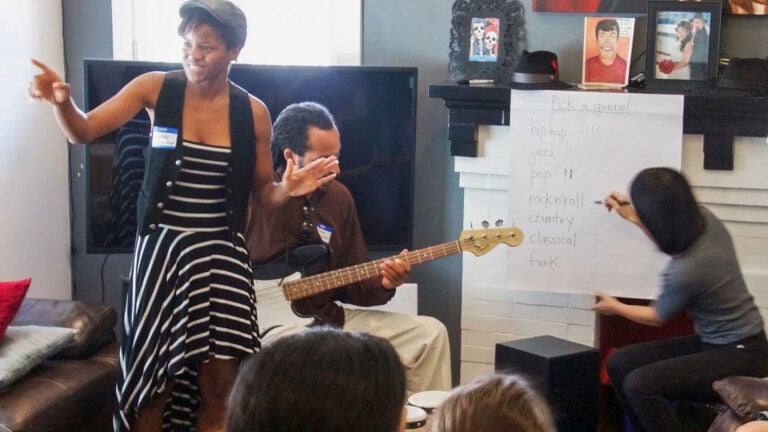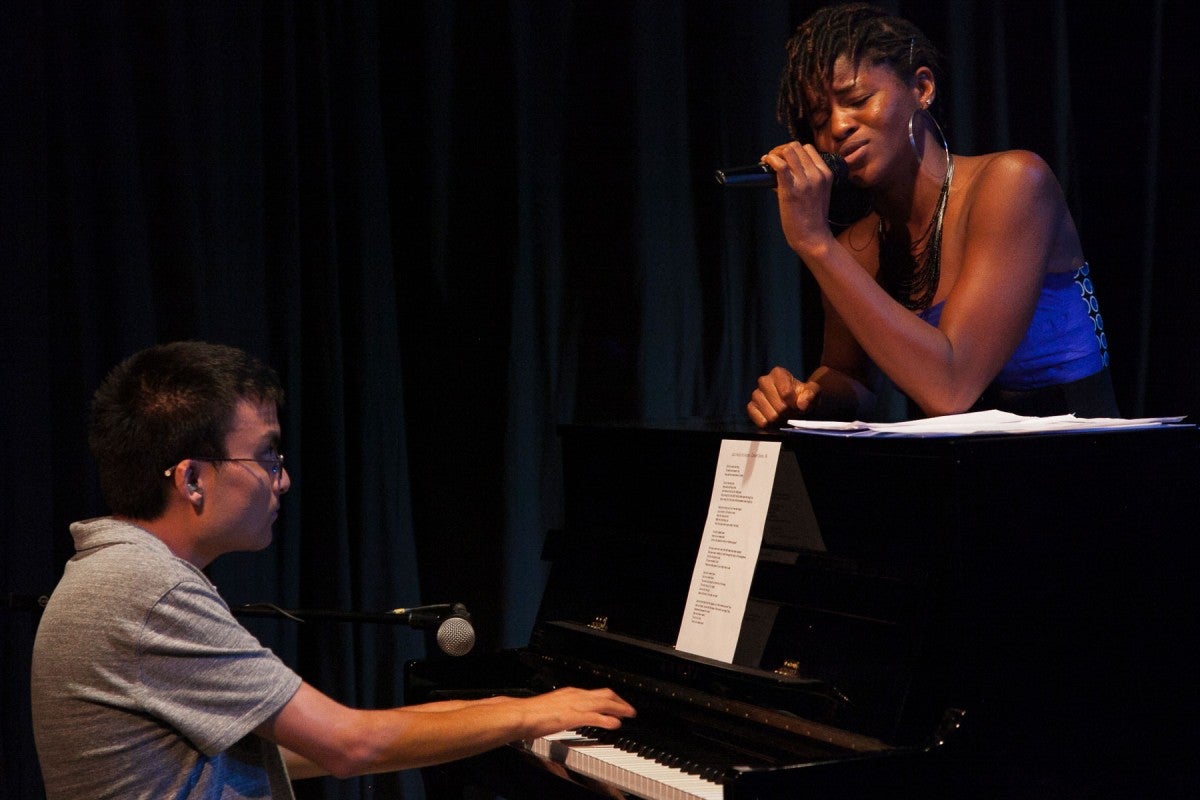
Noddy Nweke started a nonprofit to help students with autism express their musical talents. (Photo/Matthew Geldin)
Students with autism explore their musical talents
Jazz Hands for Autism, a nonprofit run by USC Price alumna, allows musicians to express themselves
Working as a behavior intervention specialist for people with autism, Noddy Nweke ’16 came across a boy named Ruben at a middle school in Marina del Rey who needed a lot of assistance in nearly every subject at school. But when it came to music class, Ruben got behind the piano, started singing and commanded the room.
The experience inspired Nweke to start the nonprofit Jazz Hands for Autism, a platform where musically inclined individuals on the autism spectrum can express and explore their talents.
Nweke is an exemplary representative of the first graduating class from the Master of Nonprofit Leadership and Management program at the USC Price School of Public Policy. After two years running Jazz Hands, she joined the MNLM program at its inception to help grow her nonprofit.
“I believed I needed more knowledge, something more concrete than Googling things,” Nweke admitted. “I needed practical, effective, efficient knowledge and networking.”
Ruben, now 17, is one of seven musicians who regularly participate in Jazz Hands’ biannual concerts. Nweke created the series so people with autism could always be secure that they have a place to perform and communicate to an audience through music.
Creating opportunities for success

Through her classes at USC Price, Nweke has developed a second program at Jazz Hands to be an incubator and vocational academy to train individuals with autism who are looking to improve their musicianship to begin a career as a musician.
The academy doesn’t teach instrumentation but will help soften the edges around already talented musicians ages 14 and up, assist them in putting together a portfolio and through partnerships guarantee at least a one-year job as a musician upon completion.
“The MNLM program has been pivotal for me in running this organization,” Nweke said. “I came in very green in the nonprofit world. I feel so much more confident that I can run an impactful, sustainable organization. What I’ve learned in class has been directly implemented into Jazz Hands — from a tool to evaluate the program, to soliciting donors, to impact investing.”
Nweke, a vocalist and songwriter herself, hopes to someday grow the capacity of the organization to be able to develop musical talent in children on the autism spectrum from an early stage.
While overseeing a team of six as executive director of Jazz Hands, Nweke continues to work part time as a behavior intervention specialist at FACT Family Therapies, working in school and home settings to monitor behavior, as well as developing, implementing and assessing intervention plans for individuals of all ages with autism.
“Noddy brings a lot of passion to the classroom,” said USC Price Associate Professor Nicole Esparza, who serves as director of graduate programs in nonprofit leadership and management. “Everyone in the program has learned so much from the experiences she has shared in regard to Jazz Hands. I am truly impressed by how much thought, energy and passion she puts into this unique and inspirational organization.”



